US Says Tehran Did Not Take Nuclear Talks ‘Seriously’
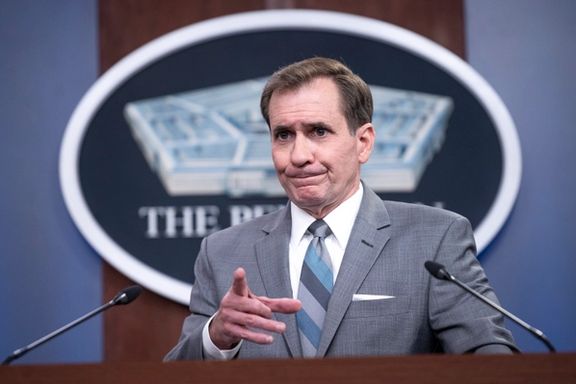
A top US national security official says Iran did not take the nuclear negotiations seriously and, instead, decided to brutalize its people and support Russia’s war in Ukraine.

A top US national security official says Iran did not take the nuclear negotiations seriously and, instead, decided to brutalize its people and support Russia’s war in Ukraine.
National Security Council Strategic Communications Coordinator John Kirby made the comments during a press briefing on Friday, emphasizing that President Joe Biden will not allow the Islamic Republic of Iran to acquire nuclear weapons and "He's serious about it."
“But we also have to make sure that we have all the capabilities and resources available to us in the region and beyond to defend our national security interests. That’s what the President said. That’s what we’re focused on,” noted Kirby.
In recent months, US officials have repeatedly emphasized that due to the violent suppression of protests in Iran, reviving the JCPOA is not on their agenda, and the government has focused on supporting the Iranian people. Talks to revive the agreement reached a stalemate last year.
The US and its European allies have been imposing more sanctions on Iranian individuals and entities engaged in human rights violations and supplying arms to Russia.
Following the death of 22-year-old Kurdish girl Mahsa Amini in the custody of Tehran's morality police in September, Iranian cities have been the scene of unprecedented nationwide protests.
According to human rights sources, at least 520 people have been killed during these protests in the last four months, and dozens of children have been identified among the dead.
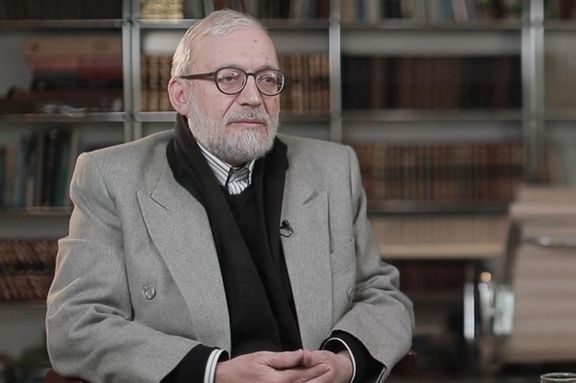
An Iranian hardliner, Mohammad-Javad Larijani from an influential family has said that the nuclear deal, JCPOA, “is dead but unfortunately not buried, and it smells.”
Larijani who is the brother of former parliament speaker Ali Larijani, an influential conservative, told the IRGC-affiliated Fars news agency that “the JCPOA is a crooked [instrument] and we should never pin hopes on it.”
Larijani, a former official with foreign relations portfolios, claimed that the 2015 nuclear accord was designed to “to bring down our nuclear capability to zero, but this is not going to happen.”
He blamed Iran’s so-called reformists for concluding the agreement, although without Supreme Leader Ali Khamenei’s consent no major decisions can be made in the Islamic Republic. He accused the reformists of blaming the current hardliner government for the failure to revive the deal, and said, “they are wrong, and I don’t understand how they have not grasped this process.”
“The strategy of the current government is a correct one, meaning that we should manage our affairs without the JCPOA…we should not allow our nuclear capability to reach zero, and thanks God it will not happen,” Larijani maintained. However, he added that Iran should continue talks.
He went on to argue that Iran needs nuclear energy for commerce and medicines, argument Iranian officials often make. However, Iran does not need a vast uranium enrichment infrastructure to have a peaceful, civilian nuclear program.
Talks since April 2021 to revive the JCPOA, abandoned by the US in 2018, have stalled and Iran is enriching uranium and is believed to have enough fissile material for up to four nuclear bombs.
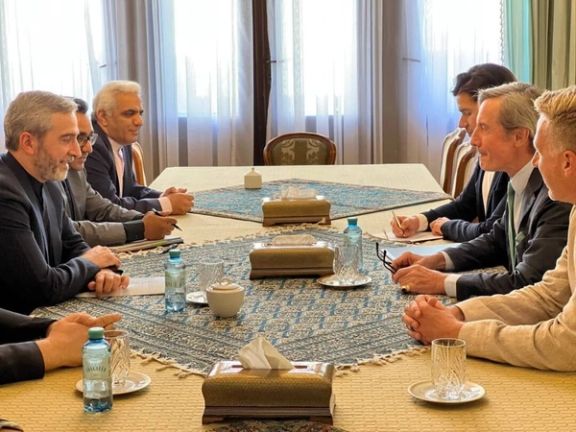
Two members of Iran's Expediency Council have called on the government to return to nuclear talks in a bid to evade the dangerous consequences of sanctions.
Mohammad Sadr has said in an interview with reformist daily Etemad that he had warned the Supreme Council of National Security and the heads of the three branches of the government about the adverse effects of failing to lift the sanctions on Iran's economy.
Sadr further told Etemad: "[President Ebrahim] Raisi told me that he has ordered his men to go ahead and further the negotiations, but he also said that there is serious opposition to the JCPOA in Iran by some security forces, those who benefit from the sanctions, and those who do not understand foreign relations."
Accusations that those who make money from sanctions by illicit trade or money laundering are not new, but it is the first time that Raisi has reportedly admitted it.
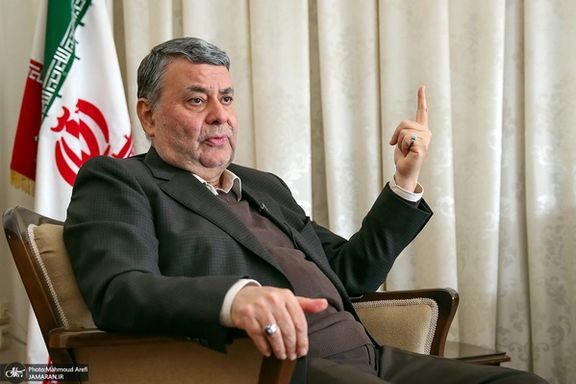
Meanwhile, in an interview with moderate conservative website Khabar Online, another Expediency Council member Gholamreza Mesbahi Moghaddam has also called on the Iranian government to resume the talks with Western governments to revive the JCPOA as the sanctions prevent foreign investments in Iran.
Both political figures also talked about the impact of Iran's involvement in the war in Ukraine. Sadr said: "Iran's impartiality in the war in Ukraine has been questioned. Peoples and governments in other countries are opposing Iran. Iran's foreign policy has not been successful, and the country's international status is weakening." Sadr added that "Iran should watch out for further diplomatic and international sanctions. The situation for Iran is very dangerous at international level particularly after the executions that have taken place."
Mesbahi Moghaddam on the other hand said that Iran should seek concessions from Russia as Moscow needs Iran to open a corridor to facilitate foreign trade as a country that needs to circumvent international sanctions.
Sadr noted that the United States has even accused Iran of committing a war crime by giving drones to Russia. At the same time, he added that the continuation of protests in Iran and the execution of several protesters has led more foreign pressures on Tehran. All of this, he said, has made an agreement with the West harder than ever before. Sadr further described the situation as an all-out economic, political and propaganda war against Iran.
He also pointed out that the regime needs to bring about a series of reforms, otherwise, it would be hardly able to properly respond to the ensuing consequences. Sadr added that Iran needs to adopt a realistic foreign policy. He pointed out that Tehran’s negotiating team has lost many precious opportunities because of the wrong policies it has pursued so far.
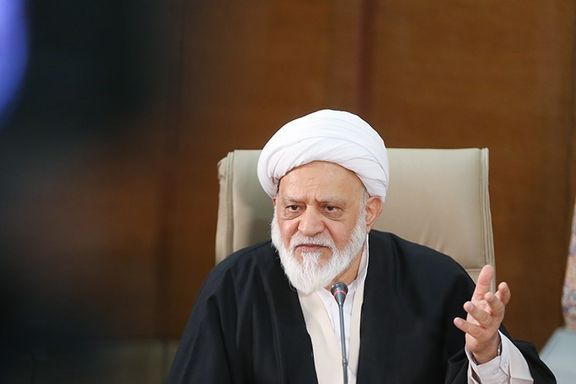
Politicians in Iran who criticize the government hardly ever mention that Supreme Leader Ali Khamenei has the last word in all major decisions, especially in foreign policy.
Sadr further pointed out that if the sanctions continue, the economic situation will worsen, and officials should stop the rhetoric about solving economic problems without an agreement over the nuclear program.
"I have talked about this with President Raisi and he is aware that a heavy pressure will be exerted on him if the problem of the JCPOA is not solved," he said, adding that some 30 percent of Iranians are already living in poverty. Some Iranians can no longer afford buying milk and fruits as inflation rises on a dayly basis.
He also warned that if executions and violation of human rights continue a dangerous international situation may occur for Iran and many countries might deport Iranian diplomats and recall their diplomats from Tehran. Meanwhile, the world public opinion has never been as seriously against the Islamic Republic as it is now.
On the other hand, Mesbahi Moghaddam charged that despite all the problems, the government in Iran has no plan or way out of the crisis. Explaining that some of his previous comments about this had annoyed government officials, he said: "What I meant was that the Raisi administration lacks a strategic vision.”
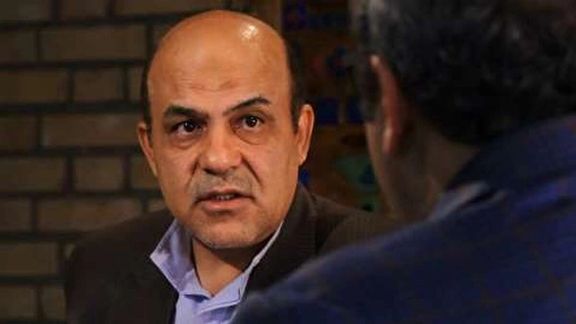
After Iran executed British-Iranian national Alireza Akbari reports say London is reconsidering its support for reviving the 2015 Iran nuclear deal.
Tehran announced on Saturday that it executed the former deputy defense minister, Alireza Akbari, after sentencing him to death on charges of spying for Britain’s MI6.
Before his death, an audio file was leaked where he claimed to have been tortured for 3,500 hours. Akbari said in the tape the regime had forced him to confess to crimes he had not committed.
Following the execution, The Sunday Telegraph said the UK is reconsidering its support for the 2015 nuclear deal known as the JCPOA, dealing another blow to the chances of reviving the accord. Britain has been a key player in the talks on restoring the Obama-era deal, abandoned by former US President Donald Trump.
The Sunday Telegraph cited senior – but unnamed -- British government sources as saying that the “landscape” has changed significantly since negotiations began in 2021, and as such Britain is now reviewing its options regarding its future involvement in renewing the deal.
“During the time we have been dealing with it, the landscape and proposition has completely changed – largely because of the behavior of the Iranian regime,” a government source said. The sources pointed out that the relationship with Tehran has been under severe strain in recent months due to its brutal repression of protests, ignited by the death in custody of Mahsa Amini. Meanwhile, Downing Street said “all options are under review” following the execution of Akbari.
Foreign Secretary James Cleverly has also announced a series of measures in response to the execution, including sanctioning the regime’s prosecutor general and summoning Iran’s charge d’affaires to convey Britain’s “disgust”. He said the sanctions show that the UK is serious about holding Iran to account for its “appalling human rights violations”.
The British ambassador to Iran has also been temporarily recalled to the UK for urgent talks about possible next steps. Cleverly is also set to travel to Washington DC on Monday for talks with US Secretary of State Antony Blinken where the two will discuss Iran.
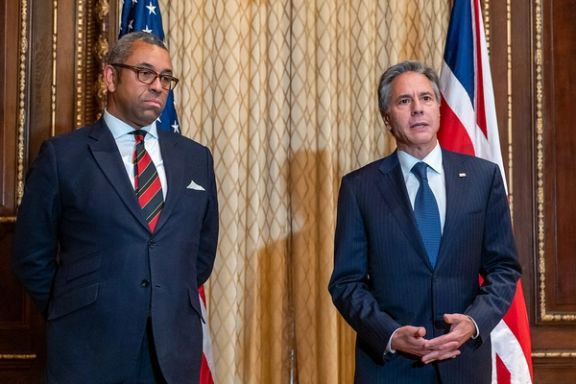
On Saturday, Rishi Sunak accused the regime of a “callous and cowardly act, carried out by a barbaric regime with no respect for the human rights of their own people”.
Ramin Forghani, Akbari’s nephew who fled to Luxembourg because of his opposition to the regime, has said that continuing the discussions with Iran would be “unthinkable”.
Britain is already drawing up plans to proscribe Iran’s Revolutionary Guard (IRGC) as a terrorist organization.
Britain has also received support from the United States, France and Germany, all signatories of the JCPOA, in its condemnation of the execution.
Since negotiations to revive the nuclear deal or JCPOA broke down in September, the Biden administration and its European allies have put the talks on the backburner and even President Joe Biden said in early November that “JCPOA is dead.”
Akbari’s execution is a major escalation in tensions between the West and the Islamic Republic, which were already sour over Tehran’s crackdown on nationwide antigovernment protests and its military support for Russia’s invasion of Ukraine.
Akbari had been deputy defense minister under the reformist President Mohammad Khatami, from 1997 to 2005. He was an advocate of the Iran nuclear deal known as the JCPOA that was eventually signed in 2015 with world powers.
He was also close to Ali Shamkhani, the secretary of the Supreme National Security Council of Iran. A source close to the Islamic Revolutionary Guard Corps has provided information to Iran International showing that the execution of Akbari is aimed at weakening Shamkhani’s position in the clerical regime. It seems that President Ebrahim Raisi, Intelligence Minister Esmail Khatib and Interior Minister Ahmed Vahidi are exerting pressure to remove Shamkhani from the post.
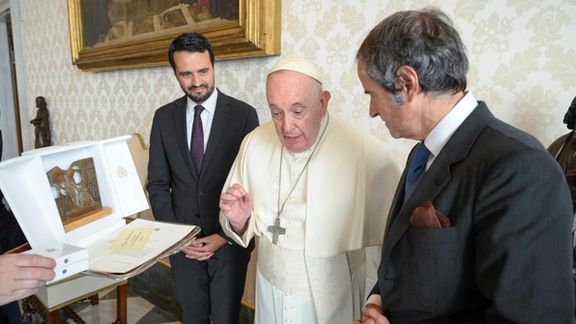
This week’s meeting between United Nations atomic chief Rafael Mariano Grossi and the pontiff focused on Ukraine but took in the stalled Iran nuclear talks.
Speaking to Catholic media following his discussion Thursday, Grossi, director-general of the UN’s International Atomic Energy Agency (IAEA), said the support of Pope Francis and the Holy See was “fundamental” in finding multilateral solutions to international crises. He welcomed the Holy Father’s emphasis on the seriousness of the nuclear threat, and said he sought “spiritual guidance” not just as a Catholic.
The IAEA chief said he would continue efforts to secure the “sanctuary-ization” of Ukraine’s Zaporizhzhia nuclear power plant, Europe’s largest, where the IAEA has sent four staff. Zaporizhzhia has been under Russian control since March and is subject to periodic shelling. The director-general said he would visit Ukraine the week of January 16 and hoped also to visit Moscow.
Following the pope’s expressed concern January 9 over the lapsed 2015 Iranian nuclear agreement, the JCPOA (Joint Comprehensive Plan of Action), at a gathering of ambassadors at Vatican, Grossi acknowledged there was an “impasse” with international negotiations “broken down” over “a volatile and dangerous issue.”
Vatican media had reported that Francis told the ambassadors that he hoped a “concrete solution can be reached as quickly as possible [to restore the JCPOA], for the sake of ensuring a more secure future.”
Iran’s continued expansion of its nuclear program in the absence of a revived JCPOA, Grossi said, constituted “steps towards proliferation.” The director-general said he hoped to go to Tehran “as soon as possible” to resume the agency’s own negotiations with Iran centered on unexplained uranium traces found in sites related to Iranian work carried out before 2003. “I am ready to travel and start again,” Grossi stressed.
‘Fear and anguish’
In response to a question on the pope’s often expressed view that the possession of nuclear weapons was immoral and that a global nuclear threat provoked “fear and anguish,” Grossi stressed the potential of the “exclusively peaceful use of nuclear power” to “provide a clean, carbon-free solution for the global economy.” But he agreed with the head of the Catholic church that “nuclear weapons do not provide security: it is the opposite.”
In Tehran, the hardliner Mehr news highlighted Grossi saying - in his interviews with Vatican media - that no progress had been made in the agency’s bilateral talks with Iran. Mehr repeated accusations by the Islamic Republic that the IAEA had in “past years…repeated some of the claims made by the Israeli regime against Iran’s nuclear program” and insisted Iran had given “detailed answers” to the agency’s questions.
The United States and its leading European allies agree with the IAEA that Iran has not provided satisfying answers to IAEA questions and demand Tehran to resolve the issue.
IAEA inspectors discovered the uranium traces after allegations made 2018 by Benjamin Netanyahu as Israeli prime minister encouraged then United States President Donald Trump’s to leave the JCPOA and slap ‘maximum pressure’ sanctions on Iran.Netanyahu has just returned as prime minister with what Haaretz military correspondent Amos Harel called “an aggressive line on Iran.”
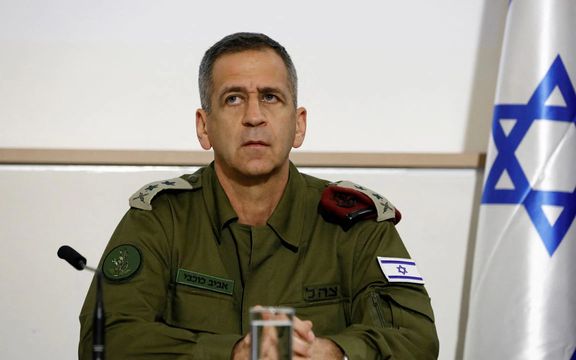
In a series of media interviews, Israel’s outgoing chief of staff concentrated on his unease over incoming ministers’ approach to the West Bank.
But with Israel Hayom, Lieutenant General Aviv Kochavi also outlined plans for attacking Iran. He said that the Israeli military had three schemes : “a retaliatory strike…unrelated to the nuclear issues,” the “taking out of the Iranian nuclear installations and auxiliary sites,” and, should the situation escalate, “a full-fledged campaign…[with] the targeting of military sites and other assets.”
Asked to compare with Israeli attacks on nuclear reactor in Iraq – referred to mistakenly by Israel Hayom as Iran – and Syria, in 1981 and 2007 respectively, Kochavi talked of “neutralizing, inflicting major damage to Iran’s nuclear program.”
The parallel may concern United States officials even as Washington has stepped up military co-operation with Israel. The French-supplied Iraqi reactor and the clandestine Syrian operation were at early stages, while Iran has been subject to intrusive international inspections and has enriched uranium stockpiles to 60 per cent purity since the United States in 2018 left the 2015 Iran nuclear agreement, the JCPOA (Joint Comprehensive Plan of Action).
‘Lying constantly’
Kochavi appeared to justify an attack by suggesting Tehran was “lying constantly” and had a military nuclear program “working at a very slow pace.” The latter contradicts US intelligence assessments that Iran gave up research into nuclear weapons in 2003 and has not taken a political decision to produce a bomb.
Kochavi claimed Iran planned four bombs, three with uranium enriched to 20 percent and one with 60-percent-enriched uranium. It was unclear if he meant Tehran aimed at ‘dirty bombs’ that spray radioactive material without a nuclear explosion or intended to further enrich existing stockpiles to create enough 90-percent-enriched uranium for four nuclear bomb.
But he held out the possibility that “five different sets of pressure” on Iran could lead to a nuclear “deal [with Iran] that could be called very good and would have no sunset.” These five pressures operated “economically, socially, diplomatically,” coming also from Iran’s “military failures, and the fact that their proxies in the region have not delivered.” The five should be linked, he argued, to “a credible military option.”
Much of Kochavi’s interviews have reflected his concern over ultra-Zionists in the new government of Benjamin Netanyahu, particularly finance minister Bezalel Smotrich and security minister Itamar Ben-Gvir. With Israel Hayom, Kochavi defended Israeli Defense Forces (IDF) autonomy in Gaza and the West Bank against political interference to the extent that “only the IDF determines what is moral and what is not; what is appropriate and what is not....”
‘Aggressive line on Iran’
Kochavi said that Gaza was “stabilized” and that “most of the attacks” in the West Bank had been “thwarted,” although “we have no way of knowing when this wave will subside.” With Jewish settlements expanding, last year was the most violent in the West Bank since 2005.
The new government is promoting concern among some Israelis, including those who believe settlements doom the ‘two state solution’ still formally supported by the US. Amos Harel, the Haaretz military correspondent, wrote January 6 that the government was “locked in ultra-hawkish rhetoric” with Netanyahu “espousing an aggressive line on Iran.”
Harel suggested that new defense minister Yaov Gallant, despite a “history of hawkish statements on Iran…[was] not necessarily a hawk on the issues,” but that he faced a power struggle with both Smotrich, who controls finance for the West Bank, and Ben-Gvir, who has already made a visit to al-Aqsa mosque compound, east Jerusalem, seen as provocative by Palestinians.
In Jerusalem Strategic Tribune this month Ksenia Svetlova, a former member of parliament, argued that with the new government the “idea of a two-state solution…seems just as feasible as ending world hunger, leaving most Israelis in limbo.”